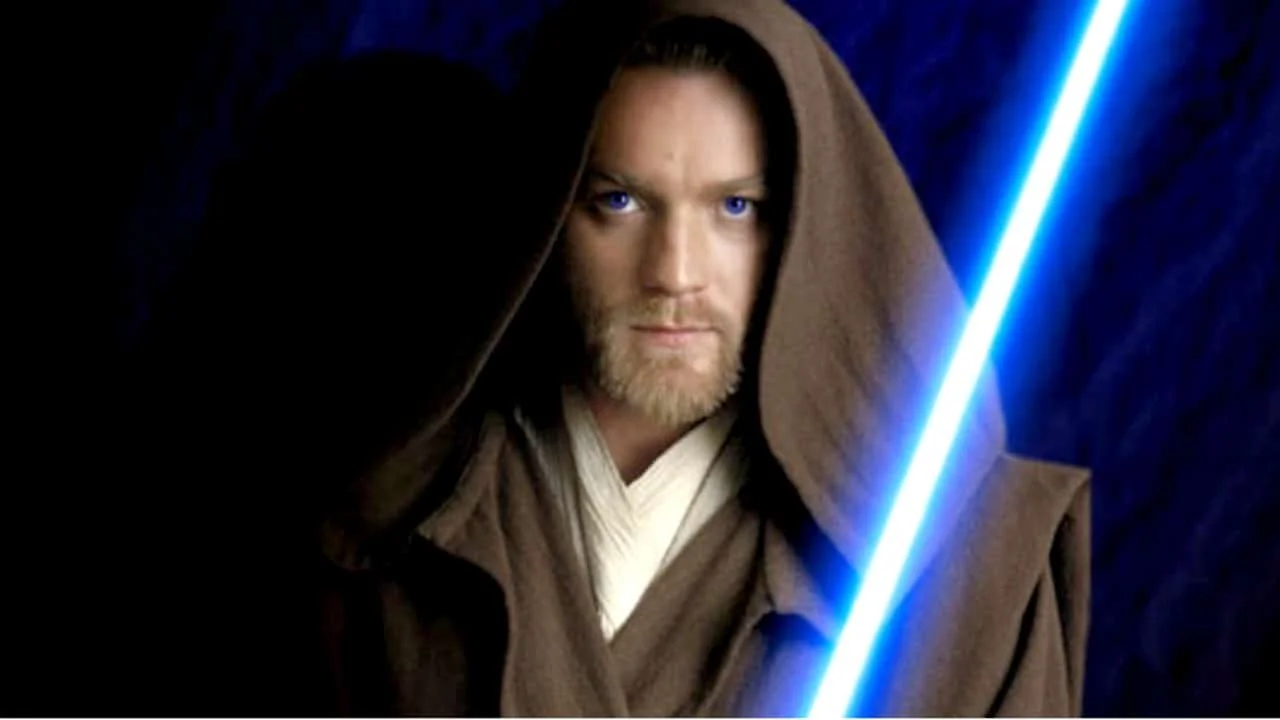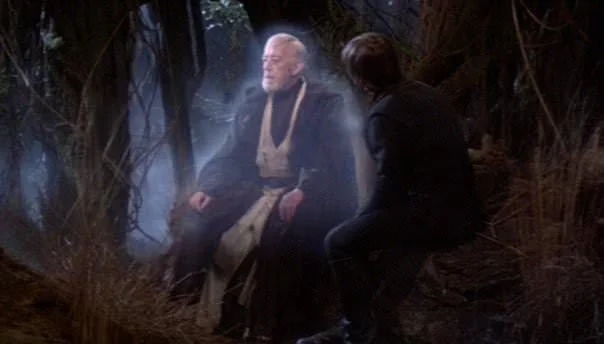The Obi-Wan In The ‘Kenobi’ Series May Be Totally Different From What We Expect...And Why It's A Good Thing
Every story needs a journey.
And, no, that is not a reference to a geographical journey, characters simply going from here to there and having one adventure after another. Some blockbusters don’t understand this. They think flinging characters through increasingly extraordinary action sequences will be exciting and engaging. Ultimately, though, we grow desensitized to it all. The unrelenting action becomes the equivalent of visual white noise.
What every good story shares is the journey the characters take intellectually, emotionally, and spiritually. Who are they when they begin the story, and who are they when the story ends? We want to see characters grow, for good or for bad, because an unchanging character is redundant. What is the point of their story if they remain static throughout? The action might excite us for the time it’s happening, but the story won’t stay with us because none of it is meaningful. We want to take a journey through that character. We want to invest in them for the running time of the movie, and live vicariously through them. We root for them because they represent what we want for ourselves— change and betterment in the face of adversity. The Obi-Wan Kenobi series offers a chance to look behind the façade of Obi-Wan Kenobi and learn more about how this man became a Jedi, how he has dealt with the fallout from the events of the prequel trilogy, and how he now fits in a galaxy that exists in this tyranny.
RELATED: Why The Vader/Kenobi Duel In Kenobi Will Make Sense
In Return of the Jedi, Obi-Wan Kenobi tells Luke Skywalker, “I thought that I could instruct him [Anakin] just as well as Yoda. I was wrong.” The inference from that line (and the way it's delivered) suggests Obi-Wan was arrogant and/or overconfident in believing he could train a Jedi as well as Yoda, and that contributed to the mishandling of Anakin, which led to Anakin’s turn to the dark side. An Obi-Wan shaped more like Qui-Gon Jinn, the lateral thinker who defies the Council and is certain of his vision, may have worked better in the prequel trilogy. His towering self-belief that he is training the Chosen One, only to be betrayed, could have pointed to Obi-Wan’s folly. As it is, Palpatine seemingly cultivates Anakin over a long period of time to a predetermined outcome. Any other teacher would have arguably fared the same with Anakin.
Of course, the movies hurtle through events, and supporting characters can suffer developmentally. The prequel trilogy is the tale of Anakin’s rise and fall. Obi-Wan serves as a foil to him, the dutiful and reliable Jedi opposite the headstrong and impulsive Jedi. For that reason, Obi-Wan remains a constant and reflects stability, while Anakin represents turmoil and anarchy.
We know Obi-Wan Kenobi was originally intended as a film, but Solo’s modest box office return turned it into a limited series instead. We know Hayden Christensen will be back as Darth Vader, that the story is set ten years after the events of Revenge of the Sith, and that Obi-Wan is on Tatooine watching Luke. Joel Edgerton—now an actor with some marquee—returning as Uncle Owen suggests he probably will not be just an incidental character.
Despite Ewan McGregor himself promising us a “rollicking adventure,” given the nature of episodic television, even in the limited series format, we are likely to get more of a character study, and finally learn about who Obi-Wan is and how he has reconciled the events of the prequel trilogy. We see some of his regret in A New Hope, but that is effectively a handful of lines written back when the prequels themselves existed only conceptually. We have the prequel trilogy now, though. Irrespective of how maligned the movies are themselves or how things might have contradicted information delivered in the original trilogy, their events have become canon.
We know Obi-Wan dismembered Anakin and left him for dead, burning on a lava bank. How has Obi-Wan coped with Anakin’s reinvention as Darth Vader? Or the emergence and domination of the Empire? When Obi-Wan and Vader meet again, as we know they will, how will they deal with Padmé’s death? Palpatine has lied to Vader and Obi-Wan knows the truth. What will Obi-Wan’s and Yoda’s plan be? They have effectively hidden Luke in the open. Is that part of some ruse?
This is compelling stuff, much more compelling than lightsaber battle after lightsaber battle. If you were to look at the original trilogy, while Luke’s and Vader’s two battles are enjoyable to watch, the genuinely compelling components are the emotional and intellectual concepts that frame them: Luke’s and Vader’s relationship, and Luke’s belief that he can redeem Vader.
You would expect to see Obi-Wan as a man filled with regret, who perhaps ruminates too much on what he could have done, and is trying to find direction in an existence that has become purgatory, living in hiding while he watches the Empire’s power and influence grow. He would also harness fears that Luke could very well become the next Vader, which we know is what Yoda fears. That specter would exist with the same foreboding that surrounded Anakin when he first came to the Jedi Council.
That also brings up another interesting point. In the prequel trilogy, we see Jedi younglings, who are kids training to become Jedi. In The Empire Strikes Back, Yoda petulantly claims Luke is too old to begin training. If the Jedi methodology is to train kids from as young as possible, and they have access to both Luke and Leia from birth, there will have to be some thought given to why the two are left to grow to adulthood before becoming engaged in the battle with the Empire. It will also be fascinating to watch how Obi-Wan Kenobi deals with characters who are moving to predetermined outcomes. A New Hope shows us what becomes of these characters, but there is room to play around with the narrative and the journey in how those characters arrive at those positions.
In just those tiny details, we find this vital nonnegotiable element that every story requires— conflict. That has been at the heart of every Star Wars story. Who are these characters? How can they be tempted? How will they reconcile who they are going to be? How will the choices they make shape this galaxy far, far away? The lightsaber fights, the space battles, and the mega-weapons are just the backdrop where all this unfolds. The scope exists for Obi-Wan Kenobi to become a fascinating character study of a man who has been with us for six movies, but whom we barely know.
And that will be the most interesting journey of all.
READ NEXT: Opinion: An Examination Of Luke Vs Rey As Relatable Characters
Source(s): ComicBook.com




